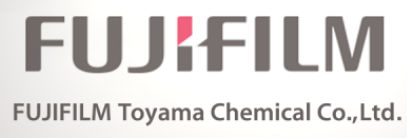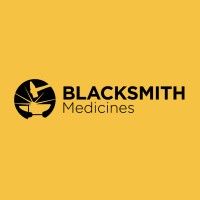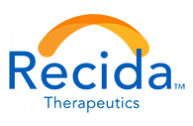预约演示
更新于:2025-05-07
LpxC
更新于:2025-05-07
基本信息
别名 UDP-(3-O-(R-3-羟基肉豆蔻酰基))-N-乙酰氨基葡糖脱乙酰酶 |
简介- |
关联
32
项与 LpxC 相关的药物靶点 |
作用机制 LpxC抑制剂 |
在研适应症 |
非在研适应症 |
最高研发阶段临床1期 |
首次获批国家/地区- |
首次获批日期1800-01-20 |
靶点 |
作用机制 LpxC modulators |
在研适应症 |
非在研适应症- |
最高研发阶段临床前 |
首次获批国家/地区- |
首次获批日期1800-01-20 |
靶点 |
作用机制 LpxC抑制剂 |
在研适应症 |
非在研适应症- |
最高研发阶段临床前 |
首次获批国家/地区- |
首次获批日期1800-01-20 |
3
项与 LpxC 相关的临床试验NCT03832517
A Phase 1, Double-Blind, Dose Escalation Study to Evaluate the Safety, Tolerability, and Pharmacokinetics of RC-01 for Injection in Healthy Adult Subjects
A Phase 1 study of the safety, tolerability and pharmacokinetics of a new antibiotic (RC-01). In Part 1 cohorts of healthy adults will participate in a single dose escalation study of increasing intravenous doses of RC-01. In Part 2 cohorts of healthy adults will participate in a multiple dose escalation study of increasing intravenous doses of RC-01 given either twice daily or three times daily.
开始日期2019-04-14 |
申办/合作机构 |
NCT01870245
A Phase 1 Multiple Dose Study to Assess the Safety, Tolerability, and Pharmacokinetics of ACHN-975 Administered Intravenously to Healthy Volunteers
This is a randomized, double-blind, placebo-controlled, multiple-dose study, designed to assess the safety, tolerability, and pharmacokinetics (PK) of ACHN-975. This study will take place in the US at one clinical site.
开始日期2013-05-01 |
申办/合作机构 |
NCT01597947
A Phase 1, Double-Blind, Randomized, Placebo-Controlled, Single Ascending Dose Study to Assess the Safety, Tolerability, and Pharmacokinetics of Intravenous (IV) ACHN-975 in Normal Healthy Volunteers
This is a double-blind, randomized, placebo-controlled, single ascending dose study to assess the safety, tolerability, and PK of ACHN-975 in normal healthy volunteers. This study will take place in the US at one clinical site.
开始日期2012-05-01 |
申办/合作机构 |
100 项与 LpxC 相关的临床结果
登录后查看更多信息
100 项与 LpxC 相关的转化医学
登录后查看更多信息
0 项与 LpxC 相关的专利(医药)
登录后查看更多信息
289
项与 LpxC 相关的文献(医药)2025-07-01·Microbial Pathogenesis
Bactericidal action of ginger (Zingiber officinale Roscoe) extract against Escherichia coli through synergistic modulation of the AcrAB-TolC efflux pump and inhibition of peptidoglycan synthesis: In vitro and in silico approaches
Article
作者: Moulick, Soumitra ; Bera, Rammohan ; Roy, Dijendra Nath
2025-05-01·European Journal of Medicinal Chemistry
Research progress of LpxC inhibitor on Gram-negative bacteria
Review
作者: Wu, Han ; Yang, Xinyi ; Zhang, Jungan ; Chen, Hongtong ; Ren, Yixin ; Chen, Lulu ; Xue, Jingsu ; Wang, Hao
2025-03-05·Antimicrobial Agents and Chemotherapy
Assessing the threat of
Yersinia pestis
harboring a multi-resistant IncC plasmid and the efficacy of an antibiotic targeting LpxC
Article
作者: Toone, Eric ; Lemaitre, Nadine ; Gooden, David ; Zhou, Pei ; Sebbane, Florent ; Rakotomanimana, Faniry ; Dewitte, Amélie ; Rajerison, Minoarisoa
13
项与 LpxC 相关的新闻(医药)2025-04-16
OTC2025论坛深度聚焦类器官与疾病建模、新药发现/研发、3D细胞培养、类器官培养及质控。展位咨询请联系:王晨 180 1628 8769。编者按:近日,在美国化学会(ACS)2025春季会议的“首次公开(First-time disclosures)”环节中,12款已进入或即将进入人体试验的小分子药物的化学结构首次公开亮相,这些潜在的新药覆盖了微生物感染、神经系统疾病、代谢疾病、心血管疾病等多个治疗领域。这些分子不仅在结构设计上展现出显著的创新性,其独特的作用机制也为相关疾病治疗开辟了新的路径。在这12款首次公开的创新药物当中,药明康德化学业务平台为其中5款提供赋能服务,助力前沿创新的快速转化。在今天的文章中,药明康德团队将依据ACS旗下C&EN网站的报道及公开信息,向读者介绍这些创新分子结构及其研发进展。候选药物:FG-2101研发机构:Blacksmith Medicines靶点:LpxC适应症:革兰氏阴性菌感染▲FG-2101的结构式(图片来源:参考资料[1])LpxC是一种锌依赖性水解酶,特异性分布于革兰氏阴性菌中,而在革兰氏阳性菌及人类细胞中未见表达。这种独特的分布特征使LpxC成为理想的抗菌靶点——针对该酶开发的抑制剂可选择性杀灭革兰氏阴性病原菌,同时避免破坏肠道益生菌群。FG-2101作为一种新型LpxC抑制剂,展现出卓越的选择性(对其他细菌及人类金属酶的选择性>1万倍)和广谱抗菌活性,并在动物模型中显示出良好的静脉注射和口服活性。传统LpxC抑制剂普遍采用异羟肟酸基团与锌离子配位,但此类化合物在临床研究中均未取得突破,导致目前市场上尚无针对LpxC的有效药物。FG-2101通过创新性应用3-羟基-2-嘧啶酮作为金属结合基团,成功克服了异羟肟酸类LpxC抑制剂的毒性问题。该药物的研发采用无机化学驱动、基于片段的药物设计策略,现已完成了支持IND申请的临床前研究(IND-enabling),并有望在今年晚些时候进入临床试验阶段。候选药物:PRT3789研发机构:Prelude Therapeutics靶点:SMARCA2适应症:实体瘤▲PRT3789的结构式(图片来源:参考资料[1])PRT3789是一种基于合成致死策略开发的SMARCA2蛋白降解剂,专门针对SMARCA4缺陷型肿瘤。在SMARCA4蛋白缺失或突变的癌症中,SMARCA2作为代偿性驱动因子促进肿瘤细胞生长。PRT3789通过选择性降解SMARCA2,实现对这类肿瘤的特异性抑制。SMARCA2蛋白降解剂的开发所面临的关键挑战是:SMARCA2与SMARCA4具有高度相似的溴结构域(介导蛋白相互作用的关键功能区),但SMARCA4在正常细胞中具有重要生理功能。PRT3789通过其分子结构中独特的手性甲基,精确调控降解剂的构象,使其能够选择性结合SMARCA2(而非SMARCA4)并与VHL E3连接酶形成三元复合物,从而通过泛素-蛋白酶体途径定向降解SMARCA2。临床前研究显示,PRT3789具有优异的选择性、理想的药代动力学(PK)特征和显著的体内抗肿瘤活性。目前,一项评估PRT3789联合Keytruda治疗SMARCA4突变的晚期、复发性/转移性实体瘤的2期临床试验正在进行中(NCT06682806)。候选药物:BMS-986458研发机构:百时美施贵宝(Bristol Myers Squibb)靶点:BCL6适应症:B细胞非霍奇金淋巴瘤▲BMS-986458的结构式(图片来源:参考资料[1])BMS-986458是一种基于cereblon(CRBN)E3连接酶的蛋白降解剂,可选择性靶向BCL6蛋白,目前正在开发用于治疗B细胞非霍奇金淋巴瘤(B-NHL)。BCL6作为调控B细胞发育的关键转录调控因子,在多种B细胞恶性肿瘤中异常高表达。BMS-986458通过同时结合BCL6和CRBN,诱导BCL6的泛素化标记,进而通过蛋白酶体途径实现特异性降解。从分子结构来看,该药物含有三个立体中心,其中一个具有差向异构化倾向。临床前研究表明,该化合物能够快速且持续地降解BCL6,并对CRBN的常见新底物(neosubstrate)表现出高度选择性。在淋巴瘤动物模型中,BMS-986458显示出优异的体内抗肿瘤活性和良好的口服生物利用度。目前,BMS-986458已进入1期临床试验阶段(NCT06090539),评估其单药或联合标准疗法治疗复发/难治性B-NHL的安全性和初步疗效。候选药物:RP-1664研发机构:Repare Therapeutics靶点:PLK4适应症:实体瘤,儿童神经母细胞瘤▲RP-1664的结构式(图片来源:参考资料[1])RP-1664是一种具有潜在"first-in-class"特性和口服生物利用度的PLK4选择性抑制剂,目前正在开发用于治疗TRIM37扩增型肿瘤。该化合物源于centrinone B的结构优化,通过系统的基于结构的设计和药代动力学特性改进,最终获得了这一具有显著药理学优势的候选药物。与centrinone B相比,RP-1664的关键结构差异在于用环丙基取代了甲氧基,这一修饰显著增强了分子的效力和选择性。临床前研究数据表明,RP-1664展现出良好的PK特性、激酶组选择性和显著的抗肿瘤活性,特别是在TRIM37扩增的动物肿瘤模型中。RP-1664目前已进入1期临床试验阶段(NCT06232408),用于评估其在晚期实体瘤患者中的安全性和初步疗效。候选药物:BMS-986238研发机构:百时美施贵宝靶点:PD-L1适应症:实体瘤▲BMS-986238的结构式(图片来源:参考资料[1])BMS-986238是百时美施贵宝在BMS-986189的基础上开发的第二代大环肽类药物,通过结构优化成功克服了第一代药物半衰期短的局限性。该化合物通过选择性抑制免疫检查点蛋白PD-L1发挥抗肿瘤作用。为改善大环肽的PK特性,研发团队采用脂肪酸修饰策略,使分子能够与血清白蛋白可逆结合,从而显著延长体内循环时间,这一技术路线与已获批的GLP-1受体激动剂类减肥药物(如Wegovy和Zepbound)类似。在分子设计过程中,研究人员发现需要在脂肪酸与大环肽核心之间保持适当距离以维持最佳活性。通过引入聚乙二醇(PEG)连接链,成功实现了两个功能基团的空间隔离。最终获得的BMS-986238展现出优异的药物特性,包括:皮摩尔级别的PD-L1结合亲和力、长半衰期,以及理想的口服生物利用度。该药物可采用每周一次皮下注射或每日一次口服给药方案,为临床使用提供了灵活性。BMS-986238已于近期完成了1期临床试验(NCT06568458),为后续临床开发奠定了基础。候选药物:ALKS 2680研发机构:Alkermes靶点:OX2R适应症:发作性睡病、特发性嗜睡症▲ALKS 2680的结构式(图片来源:参考资料[1])ALKS 2680是一种靶向食欲素2型受体(OX2R)的新型大环化合物,该受体在调节人体睡眠-觉醒周期中起关键作用。基于对OX2R配体结合特征的研究发现,传统小分子配体通常呈现C形构象。为此,研发团队创新性地设计了大环结构,通过共价连接子将这种关键的C形构象稳定锁定,从而优化了药物与受体的结合特性。目前,该候选药物正在多项临床试验中接受评估,其中包括一项针对1型发作性睡病患者的2期临床试验(NCT06358950),旨在评估其治疗这一睡眠障碍的疗效和安全性。候选药物:IAMA-6研发机构:Iama Therapeutics靶点:NKCC1适应症:神经系统疾病,包括自闭症谱系障碍、唐氏综合征和耐药性癫痫▲IAMA-6的结构式(图片来源:参考资料[1])IAMA-6是一种新型选择性NKCC1抑制剂,正在开发用于治疗自闭症谱系障碍、唐氏综合征和耐药性癫痫等神经系统疾病。这些疾病的共同病理特征是与NKCC1介导的脑内氯离子稳态失衡。与早期NKCC抑制剂不同,IAMA-6通过独特的分子设计实现了对NKCC1的选择性,避免了同时抑制NKCC2(一种参与利尿作用的相关转运蛋白)所导致的副作用。该化合物的关键优势在于其良好的血脑屏障穿透能力,使其能够在中枢神经系统发挥治疗作用。IAMA-6能有效恢复脑内氯离子平衡,且不会引起利尿等不良反应。目前,IAMA-6已完成了1期临床试验(NCT06300398),Iama公司计划于2026年启动2期临床研究,进一步评估其治疗潜力。候选药物:ORIC-114研发机构:Oric Pharmaceuticals靶点:EGFR和HER2基因20号外显子插入突变适应症:携带EGFR或HER2基因20号外显子插入突变的非小细胞肺癌(NSCLC)▲ORIC-114的结构式(图片来源:参考资料[1])携带EGFR或HER2基因20号外显子插入突变的非小细胞肺癌(NSCLC)患者,在疾病进展过程中常发生脑转移。然而,现有针对这类突变的靶向药物普遍存在血脑屏障穿透能力不足的局限性。ORIC-114是一种新型高选择性、不可逆的EGFR/HER2外显子20插入突变抑制剂,通过特异性与突变蛋白形成共价结合,展现出独特的治疗优势。临床前研究表明,ORIC-114不仅具有优异的血脑屏障穿透能力,还对中枢神经系统肿瘤(包括携带非典型EGFR突变的肿瘤)表现出显著抗肿瘤活性。在每日口服给药的NSCLC模型中,该药物可诱导肿瘤消退。ORIC-114目前正在开展1/2期临床试验(NCT05315700)以进一步评估其疗效和安全性。在1b期临床试验中,ORIC-114已展现出令人振奋的临床活性。其中一位晚期癌症女性患者的治疗经历尤为突出:在接受一轮ORIC-114治疗后,其四个脑部转移灶完全消失;经过两轮治疗后,肺部原发肿瘤也出现明显缓解。候选药物:AZD2389研发机构:阿斯利康(AstraZeneca)靶点:成纤维细胞激活蛋白(FAP)适应症:代谢功能障碍相关脂肪性肝炎(MASH)▲AZD2389的结构式(图片来源:参考资料[1])MASH是一种以肝脏脂肪异常蓄积为特征的慢性肝病,可进展为肝纤维化,甚至肝硬化或肝癌,严重威胁患者生命。研究表明,FAP在肝纤维化进程中发挥关键作用,可能促进疾病恶化。AZD2389是一种新型FAP抑制剂,其分子结构中的腈基团可与FAP蛋白形成共价结合,从而高效抑制其活性。该药物的研发源于对噻唑烷类化合物的优化筛选,并借助人工智能技术加速了候选分子的发现与优化。临床前研究结果显示,在非人灵长类动物模型中,AZD2389可显著改善组织学纤维化程度,且耐受性良好。基于这些积极数据,AZD2389目前正在肝纤维化及代偿性肝硬化患者中进行2期临床试验(NCT06750276),以进一步评估其疗效与安全性。候选药物:PF-07853578研发机构:辉瑞(Pfizer)靶点:PNPLA3 I148M突变体适应症:代谢功能障碍相关性脂肪肝▲PF-07853578的结构式(图片来源:参考资料[1])PNPLA3 I148M突变与肝脏脂肪堆积、炎症、纤维化及肝癌风险显著升高相关。研究表明,该突变会损害PNPLA3酶的正常功能,抑制肝脏脂质分解代谢,从而促进脂肪肝及相关肝病的进展。PF-07853578是一种靶向PNPLA3 I148M突变体的小分子共价抑制剂。其分子中的氨基甲酸酯基团可特异性结合PNPLA3 I148M的催化丝氨酸残基,形成共价键,促使突变蛋白从脂滴中清除,并进一步通过蛋白酶体途径降解致病蛋白。目前,PF-07853578已完成了1期临床试验(NCT05890105)。若后续开发进展顺利,该药物有望成为全球首个针对PNPLA3 I148M突变体的小分子疗法。候选药物:CK-4021586研发机构:Cytokinetics靶点:心肌纤维ATP酶适应症:射血分数保留型心力衰竭(HFpEF)▲CK-4021586的结构式(图片来源:参考资料[1])CK-4021586是一种靶向心肌肌球蛋白ATP酶的创新小分子药物,该化合物的分子结构中含有一个独特的氮杂环丁烷甲醛基团,通过选择性地结合肌球蛋白的调节轻链,调节心脏收缩能力继而改善左心室舒张功能——这是HFpEF的核心病理生理特征,表现为心室舒张期主动松弛障碍。该药物目前正在进行1/2期临床试验(NCT06793371),旨在评估其在HFpEF患者中的安全性、药代动力学特征及初步疗效。候选药物:BAY 3389934研发机构:拜耳(Bayer)靶点:凝血因子IIa(FIIa)和凝血因子Xa(FXa)适应症:败血症引起的凝血功能障碍▲BAY 3389934的结构式(图片来源:参考资料[1])败血症引发的凝血功能障碍是一种危及生命的并发症,这类患者往往临床预后不佳。BAY 3389934是一种静脉注射用短效FIIa/FXa双因子抑制剂,其分子设计采用代谢不稳定的酯结构,可实现快速清除。这一特性使得其在重症监护环境下能够精确调控抗凝强度,为败血症相关凝血病的治疗提供了更安全的干预手段。BAY 3389934目前已进入1期临床试验阶段(NCT06854640),以评估药物的安全性、确定最佳给药剂量,并初步探索其对败血症相关凝血病患者的治疗效果,为后续临床开发奠定基础。随着2025年美国化学学会春季会议的圆满落幕,这12款创新小分子药物的公开亮相,彰显了业界在多个治疗领域持续探索创新突破的努力。我们期待这些候选药物能够在后续研究中展现出良好的临床潜力,为患者带来更多治疗选择。参考资料:[1] 12 drug candidates debut in San Diego. Retrieved April 8, 2025, from https://cen.acs.org/acs-news/acs-meeting-news/12-drug-candidates-debut-San/103/web/2025/03[2] ACS Spring 2025 First Time Disclosures. Retrieved April 8, 2025, from https://drughunter.com/articles/acs-spring-2025-first-time-disclosures?utm_source=Drug+Hunter&utm_campaign=c08906648e-EMAIL_CAMPAIGN_2023_03_14_02_52_MOTMJAN24_COPY_01&utm_medium=email&utm_term=0_-e31d28fdc0-443947248END免责声明:本文仅作知识交流与分享及科普目的,不涉及商业宣传,不作为相关医疗指导或用药建议。文章如有侵权请联系删除。OTC2025论坛深度聚焦类器官与疾病建模、新药发现/研发、3D细胞培养、类器官培养及质控。展位咨询请联系:王晨 180 1628 8769。戳“阅读原文”立即领取OTC2025免费参会名额!
临床申请微生物疗法
2025-04-16
·医药观澜
▎药明康德团队编辑编者按:近日,在美国化学会(ACS)2025春季会议的“首次公开(First-time disclosures)”环节中,12款已进入或即将进入人体试验的小分子药物的化学结构首次公开亮相,这些潜在的新药覆盖了微生物感染、神经系统疾病、代谢疾病、心血管疾病等多个治疗领域。这些分子不仅在结构设计上展现出显著的创新性,其独特的作用机制也为相关疾病治疗开辟了新的路径。在这12款首次公开的创新药物当中,药明康德化学业务平台为其中5款提供赋能服务,助力前沿创新的快速转化。在今天的文章中,药明康德团队将依据ACS旗下C&EN网站的报道及公开信息,向读者介绍这些创新分子结构及其研发进展。候选药物:FG-2101研发机构:Blacksmith Medicines靶点:LpxC适应症:革兰氏阴性菌感染▲FG-2101的结构式(图片来源:参考资料[1])LpxC是一种锌依赖性水解酶,特异性分布于革兰氏阴性菌中,而在革兰氏阳性菌及人类细胞中未见表达。这种独特的分布特征使LpxC成为理想的抗菌靶点——针对该酶开发的抑制剂可选择性杀灭革兰氏阴性病原菌,同时避免破坏肠道益生菌群。FG-2101作为一种新型LpxC抑制剂,展现出卓越的选择性(对其他细菌及人类金属酶的选择性>1万倍)和广谱抗菌活性,并在动物模型中显示出良好的静脉注射和口服活性。传统LpxC抑制剂普遍采用异羟肟酸基团与锌离子配位,但此类化合物在临床研究中均未取得突破,导致目前市场上尚无针对LpxC的有效药物。FG-2101通过创新性应用3-羟基-2-嘧啶酮作为金属结合基团,成功克服了异羟肟酸类LpxC抑制剂的毒性问题。该药物的研发采用无机化学驱动、基于片段的药物设计策略,现已完成了支持IND申请的临床前研究(IND-enabling),并有望在今年晚些时候进入临床试验阶段。候选药物:PRT3789研发机构:Prelude Therapeutics靶点:SMARCA2适应症:实体瘤▲PRT3789的结构式(图片来源:参考资料[1])PRT3789是一种基于合成致死策略开发的SMARCA2蛋白降解剂,专门针对SMARCA4缺陷型肿瘤。在SMARCA4蛋白缺失或突变的癌症中,SMARCA2作为代偿性驱动因子促进肿瘤细胞生长。PRT3789通过选择性降解SMARCA2,实现对这类肿瘤的特异性抑制。SMARCA2蛋白降解剂的开发所面临的关键挑战是:SMARCA2与SMARCA4具有高度相似的溴结构域(介导蛋白相互作用的关键功能区),但SMARCA4在正常细胞中具有重要生理功能。PRT3789通过其分子结构中独特的手性甲基,精确调控降解剂的构象,使其能够选择性结合SMARCA2(而非SMARCA4)并与VHL E3连接酶形成三元复合物,从而通过泛素-蛋白酶体途径定向降解SMARCA2。临床前研究显示,PRT3789具有优异的选择性、理想的药代动力学(PK)特征和显著的体内抗肿瘤活性。目前,一项评估PRT3789联合Keytruda治疗SMARCA4突变的晚期、复发性/转移性实体瘤的2期临床试验正在进行中(NCT06682806)。候选药物:BMS-986458研发机构:百时美施贵宝(Bristol Myers Squibb)靶点:BCL6适应症:B细胞非霍奇金淋巴瘤▲BMS-986458的结构式(图片来源:参考资料[1])BMS-986458是一种基于cereblon(CRBN)E3连接酶的蛋白降解剂,可选择性靶向BCL6蛋白,目前正在开发用于治疗B细胞非霍奇金淋巴瘤(B-NHL)。BCL6作为调控B细胞发育的关键转录调控因子,在多种B细胞恶性肿瘤中异常高表达。BMS-986458通过同时结合BCL6和CRBN,诱导BCL6的泛素化标记,进而通过蛋白酶体途径实现特异性降解。从分子结构来看,该药物含有三个立体中心,其中一个具有差向异构化倾向。临床前研究表明,该化合物能够快速且持续地降解BCL6,并对CRBN的常见新底物(neosubstrate)表现出高度选择性。在淋巴瘤动物模型中,BMS-986458显示出优异的体内抗肿瘤活性和良好的口服生物利用度。目前,BMS-986458已进入1期临床试验阶段(NCT06090539),评估其单药或联合标准疗法治疗复发/难治性B-NHL的安全性和初步疗效。候选药物:RP-1664研发机构:Repare Therapeutics靶点:PLK4适应症:实体瘤,儿童神经母细胞瘤▲RP-1664的结构式(图片来源:参考资料[1])RP-1664是一种具有潜在"first-in-class"特性和口服生物利用度的PLK4选择性抑制剂,目前正在开发用于治疗TRIM37扩增型肿瘤。该化合物源于centrinone B的结构优化,通过系统的基于结构的设计和药代动力学特性改进,最终获得了这一具有显著药理学优势的候选药物。与centrinone B相比,RP-1664的关键结构差异在于用环丙基取代了甲氧基,这一修饰显著增强了分子的效力和选择性。临床前研究数据表明,RP-1664展现出良好的PK特性、激酶组选择性和显著的抗肿瘤活性,特别是在TRIM37扩增的动物肿瘤模型中。RP-1664目前已进入1期临床试验阶段(NCT06232408),用于评估其在晚期实体瘤患者中的安全性和初步疗效。候选药物:BMS-986238研发机构:百时美施贵宝靶点:PD-L1适应症:实体瘤▲BMS-986238的结构式(图片来源:参考资料[1])BMS-986238是百时美施贵宝在BMS-986189的基础上开发的第二代大环肽类药物,通过结构优化成功克服了第一代药物半衰期短的局限性。该化合物通过选择性抑制免疫检查点蛋白PD-L1发挥抗肿瘤作用。为改善大环肽的PK特性,研发团队采用脂肪酸修饰策略,使分子能够与血清白蛋白可逆结合,从而显著延长体内循环时间,这一技术路线与已获批的GLP-1受体激动剂类减肥药物(如Wegovy和Zepbound)类似。在分子设计过程中,研究人员发现需要在脂肪酸与大环肽核心之间保持适当距离以维持最佳活性。通过引入聚乙二醇(PEG)连接链,成功实现了两个功能基团的空间隔离。最终获得的BMS-986238展现出优异的药物特性,包括:皮摩尔级别的PD-L1结合亲和力、长半衰期,以及理想的口服生物利用度。该药物可采用每周一次皮下注射或每日一次口服给药方案,为临床使用提供了灵活性。BMS-986238已于近期完成了1期临床试验(NCT06568458),为后续临床开发奠定了基础。候选药物:ALKS 2680研发机构:Alkermes靶点:OX2R适应症:发作性睡病、特发性嗜睡症▲ALKS 2680的结构式(图片来源:参考资料[1])ALKS 2680是一种靶向食欲素2型受体(OX2R)的新型大环化合物,该受体在调节人体睡眠-觉醒周期中起关键作用。基于对OX2R配体结合特征的研究发现,传统小分子配体通常呈现C形构象。为此,研发团队创新性地设计了大环结构,通过共价连接子将这种关键的C形构象稳定锁定,从而优化了药物与受体的结合特性。目前,该候选药物正在多项临床试验中接受评估,其中包括一项针对1型发作性睡病患者的2期临床试验(NCT06358950),旨在评估其治疗这一睡眠障碍的疗效和安全性。候选药物:IAMA-6研发机构:Iama Therapeutics靶点:NKCC1适应症:神经系统疾病,包括自闭症谱系障碍、唐氏综合征和耐药性癫痫▲IAMA-6的结构式(图片来源:参考资料[1])IAMA-6是一种新型选择性NKCC1抑制剂,正在开发用于治疗自闭症谱系障碍、唐氏综合征和耐药性癫痫等神经系统疾病。这些疾病的共同病理特征是与NKCC1介导的脑内氯离子稳态失衡。与早期NKCC抑制剂不同,IAMA-6通过独特的分子设计实现了对NKCC1的选择性,避免了同时抑制NKCC2(一种参与利尿作用的相关转运蛋白)所导致的副作用。该化合物的关键优势在于其良好的血脑屏障穿透能力,使其能够在中枢神经系统发挥治疗作用。IAMA-6能有效恢复脑内氯离子平衡,且不会引起利尿等不良反应。目前,IAMA-6已完成了1期临床试验(NCT06300398),Iama公司计划于2026年启动2期临床研究,进一步评估其治疗潜力。候选药物:ORIC-114研发机构:Oric Pharmaceuticals靶点:EGFR和HER2基因20号外显子插入突变适应症:携带EGFR或HER2基因20号外显子插入突变的非小细胞肺癌(NSCLC)▲ORIC-114的结构式(图片来源:参考资料[1])携带EGFR或HER2基因20号外显子插入突变的非小细胞肺癌(NSCLC)患者,在疾病进展过程中常发生脑转移。然而,现有针对这类突变的靶向药物普遍存在血脑屏障穿透能力不足的局限性。ORIC-114是一种新型高选择性、不可逆的EGFR/HER2外显子20插入突变抑制剂,通过特异性与突变蛋白形成共价结合,展现出独特的治疗优势。临床前研究表明,ORIC-114不仅具有优异的血脑屏障穿透能力,还对中枢神经系统肿瘤(包括携带非典型EGFR突变的肿瘤)表现出显著抗肿瘤活性。在每日口服给药的NSCLC模型中,该药物可诱导肿瘤消退。ORIC-114目前正在开展1/2期临床试验(NCT05315700)以进一步评估其疗效和安全性。在1b期临床试验中,ORIC-114已展现出令人振奋的临床活性。其中一位晚期癌症女性患者的治疗经历尤为突出:在接受一轮ORIC-114治疗后,其四个脑部转移灶完全消失;经过两轮治疗后,肺部原发肿瘤也出现明显缓解。候选药物:AZD2389研发机构:阿斯利康(AstraZeneca)靶点:成纤维细胞激活蛋白(FAP)适应症:代谢功能障碍相关脂肪性肝炎(MASH)▲AZD2389的结构式(图片来源:参考资料[1])MASH是一种以肝脏脂肪异常蓄积为特征的慢性肝病,可进展为肝纤维化,甚至肝硬化或肝癌,严重威胁患者生命。研究表明,FAP在肝纤维化进程中发挥关键作用,可能促进疾病恶化。AZD2389是一种新型FAP抑制剂,其分子结构中的腈基团可与FAP蛋白形成共价结合,从而高效抑制其活性。该药物的研发源于对噻唑烷类化合物的优化筛选,并借助人工智能技术加速了候选分子的发现与优化。临床前研究结果显示,在非人灵长类动物模型中,AZD2389可显著改善组织学纤维化程度,且耐受性良好。基于这些积极数据,AZD2389目前正在肝纤维化及代偿性肝硬化患者中进行2期临床试验(NCT06750276),以进一步评估其疗效与安全性。候选药物:PF-07853578研发机构:辉瑞(Pfizer)靶点:PNPLA3 I148M突变体适应症:代谢功能障碍相关性脂肪肝▲PF-07853578的结构式(图片来源:参考资料[1])PNPLA3 I148M突变与肝脏脂肪堆积、炎症、纤维化及肝癌风险显著升高相关。研究表明,该突变会损害PNPLA3酶的正常功能,抑制肝脏脂质分解代谢,从而促进脂肪肝及相关肝病的进展。PF-07853578是一种靶向PNPLA3 I148M突变体的小分子共价抑制剂。其分子中的氨基甲酸酯基团可特异性结合PNPLA3 I148M的催化丝氨酸残基,形成共价键,促使突变蛋白从脂滴中清除,并进一步通过蛋白酶体途径降解致病蛋白。目前,PF-07853578已完成了1期临床试验(NCT05890105)。若后续开发进展顺利,该药物有望成为全球首个针对PNPLA3 I148M突变体的小分子疗法。候选药物:CK-4021586研发机构:Cytokinetics靶点:心肌纤维ATP酶适应症:射血分数保留型心力衰竭(HFpEF)▲CK-4021586的结构式(图片来源:参考资料[1])CK-4021586是一种靶向心肌肌球蛋白ATP酶的创新小分子药物,该化合物的分子结构中含有一个独特的氮杂环丁烷甲醛基团,通过选择性地结合肌球蛋白的调节轻链,调节心脏收缩能力继而改善左心室舒张功能——这是HFpEF的核心病理生理特征,表现为心室舒张期主动松弛障碍。该药物目前正在进行1/2期临床试验(NCT06793371),旨在评估其在HFpEF患者中的安全性、药代动力学特征及初步疗效。候选药物:BAY 3389934研发机构:拜耳(Bayer)靶点:凝血因子IIa(FIIa)和凝血因子Xa(FXa)适应症:败血症引起的凝血功能障碍▲BAY 3389934的结构式(图片来源:参考资料[1])败血症引发的凝血功能障碍是一种危及生命的并发症,这类患者往往临床预后不佳。BAY 3389934是一种静脉注射用短效FIIa/FXa双因子抑制剂,其分子设计采用代谢不稳定的酯结构,可实现快速清除。这一特性使得其在重症监护环境下能够精确调控抗凝强度,为败血症相关凝血病的治疗提供了更安全的干预手段。BAY 3389934目前已进入1期临床试验阶段(NCT06854640),以评估药物的安全性、确定最佳给药剂量,并初步探索其对败血症相关凝血病患者的治疗效果,为后续临床开发奠定基础。随着2025年美国化学学会春季会议的圆满落幕,这12款创新小分子药物的公开亮相,彰显了业界在多个治疗领域持续探索创新突破的努力。我们期待这些候选药物能够在后续研究中展现出良好的临床潜力,为患者带来更多治疗选择。参考资料:[1] 12 drug candidates debut in San Diego. Retrieved April 8, 2025, from https://cen.acs.org/acs-news/acs-meeting-news/12-drug-candidates-debut-San/103/web/2025/03[2] ACS Spring 2025 First Time Disclosures. Retrieved April 8, 2025, from https://drughunter.com/articles/acs-spring-2025-first-time-disclosures?utm_source=Drug+Hunter&utm_campaign=c08906648e-EMAIL_CAMPAIGN_2023_03_14_02_52_MOTMJAN24_COPY_01&utm_medium=email&utm_term=0_-e31d28fdc0-443947248本文来自药明康德内容团队,欢迎个人转发至朋友圈,谢绝媒体或机构未经授权以任何形式转载至其他平台。转载授权或其他合作需求,请联系wuxi_media@wuxiapptec.com。免责声明:药明康德内容团队专注介绍全球生物医药健康研究进展。本文仅作信息交流之目的,文中观点不代表药明康德立场,亦不代表药明康德支持或反对文中观点。本文也不是治疗方案推荐。如需获得治疗方案指导,请前往正规医院就诊。
临床申请微生物疗法
2025-04-14
·药明康德
▎药明康德团队编辑编者按:近日,在美国化学会(ACS)2025春季会议的“首次公开(First-time disclosures)”环节中,12款已进入或即将进入人体试验的小分子药物的化学结构首次公开亮相,这些潜在的新药覆盖了微生物感染、神经系统疾病、代谢疾病、心血管疾病等多个治疗领域。这些分子不仅在结构设计上展现出显著的创新性,其独特的作用机制也为相关疾病治疗开辟了新的路径。在这12款首次公开的创新药物当中,药明康德化学业务平台为其中5款提供赋能服务,助力前沿创新的快速转化。在今天的文章中,药明康德团队将依据ACS旗下C&EN网站的报道及公开信息,向读者介绍这些创新分子结构及其研发进展。候选药物:FG-2101研发机构:Blacksmith Medicines靶点:LpxC适应症:革兰氏阴性菌感染▲FG-2101的结构式(图片来源:参考资料[1])LpxC是一种锌依赖性水解酶,特异性分布于革兰氏阴性菌中,而在革兰氏阳性菌及人类细胞中未见表达。这种独特的分布特征使LpxC成为理想的抗菌靶点——针对该酶开发的抑制剂可选择性杀灭革兰氏阴性病原菌,同时避免破坏肠道益生菌群。FG-2101作为一种新型LpxC抑制剂,展现出卓越的选择性(对其他细菌及人类金属酶的选择性>1万倍)和广谱抗菌活性,并在动物模型中显示出良好的静脉注射和口服活性。传统LpxC抑制剂普遍采用异羟肟酸基团与锌离子配位,但此类化合物在临床研究中均未取得突破,导致目前市场上尚无针对LpxC的有效药物。FG-2101通过创新性应用3-羟基-2-嘧啶酮作为金属结合基团,成功克服了异羟肟酸类LpxC抑制剂的毒性问题。该药物的研发采用无机化学驱动、基于片段的药物设计策略,现已完成了支持IND申请的临床前研究(IND-enabling),并有望在今年晚些时候进入临床试验阶段。候选药物:PRT3789研发机构:Prelude Therapeutics靶点:SMARCA2适应症:实体瘤▲PRT3789的结构式(图片来源:参考资料[1])PRT3789是一种基于合成致死策略开发的SMARCA2蛋白降解剂,专门针对SMARCA4缺陷型肿瘤。在SMARCA4蛋白缺失或突变的癌症中,SMARCA2作为代偿性驱动因子促进肿瘤细胞生长。PRT3789通过选择性降解SMARCA2,实现对这类肿瘤的特异性抑制。SMARCA2蛋白降解剂的开发所面临的关键挑战是:SMARCA2与SMARCA4具有高度相似的溴结构域(介导蛋白相互作用的关键功能区),但SMARCA4在正常细胞中具有重要生理功能。PRT3789通过其分子结构中独特的手性甲基,精确调控降解剂的构象,使其能够选择性结合SMARCA2(而非SMARCA4)并与VHL E3连接酶形成三元复合物,从而通过泛素-蛋白酶体途径定向降解SMARCA2。临床前研究显示,PRT3789具有优异的选择性、理想的药代动力学(PK)特征和显著的体内抗肿瘤活性。目前,一项评估PRT3789联合Keytruda治疗SMARCA4突变的晚期、复发性/转移性实体瘤的2期临床试验正在进行中(NCT06682806)。候选药物:BMS-986458研发机构:百时美施贵宝(Bristol Myers Squibb)靶点:BCL6适应症:B细胞非霍奇金淋巴瘤▲BMS-986458的结构式(图片来源:参考资料[1])BMS-986458是一种基于cereblon(CRBN)E3连接酶的蛋白降解剂,可选择性靶向BCL6蛋白,目前正在开发用于治疗B细胞非霍奇金淋巴瘤(B-NHL)。BCL6作为调控B细胞发育的关键转录调控因子,在多种B细胞恶性肿瘤中异常高表达。BMS-986458通过同时结合BCL6和CRBN,诱导BCL6的泛素化标记,进而通过蛋白酶体途径实现特异性降解。从分子结构来看,该药物含有三个立体中心,其中一个具有差向异构化倾向。临床前研究表明,该化合物能够快速且持续地降解BCL6,并对CRBN的常见新底物(neosubstrate)表现出高度选择性。在淋巴瘤动物模型中,BMS-986458显示出优异的体内抗肿瘤活性和良好的口服生物利用度。目前,BMS-986458已进入1期临床试验阶段(NCT06090539),评估其单药或联合标准疗法治疗复发/难治性B-NHL的安全性和初步疗效。候选药物:RP-1664研发机构:Repare Therapeutics靶点:PLK4适应症:实体瘤,儿童神经母细胞瘤▲RP-1664的结构式(图片来源:参考资料[1])RP-1664是一种具有潜在"first-in-class"特性和口服生物利用度的PLK4选择性抑制剂,目前正在开发用于治疗TRIM37扩增型肿瘤。该化合物源于centrinone B的结构优化,通过系统的基于结构的设计和药代动力学特性改进,最终获得了这一具有显著药理学优势的候选药物。与centrinone B相比,RP-1664的关键结构差异在于用环丙基取代了甲氧基,这一修饰显著增强了分子的效力和选择性。临床前研究数据表明,RP-1664展现出良好的PK特性、激酶组选择性和显著的抗肿瘤活性,特别是在TRIM37扩增的动物肿瘤模型中。RP-1664目前已进入1期临床试验阶段(NCT06232408),用于评估其在晚期实体瘤患者中的安全性和初步疗效。候选药物:BMS-986238研发机构:百时美施贵宝靶点:PD-L1适应症:实体瘤▲BMS-986238的结构式(图片来源:参考资料[1])BMS-986238是百时美施贵宝在BMS-986189的基础上开发的第二代大环肽类药物,通过结构优化成功克服了第一代药物半衰期短的局限性。该化合物通过选择性抑制免疫检查点蛋白PD-L1发挥抗肿瘤作用。为改善大环肽的PK特性,研发团队采用脂肪酸修饰策略,使分子能够与血清白蛋白可逆结合,从而显著延长体内循环时间,这一技术路线与已获批的GLP-1受体激动剂类减肥药物(如Wegovy和Zepbound)类似。在分子设计过程中,研究人员发现需要在脂肪酸与大环肽核心之间保持适当距离以维持最佳活性。通过引入聚乙二醇(PEG)连接链,成功实现了两个功能基团的空间隔离。最终获得的BMS-986238展现出优异的药物特性,包括:皮摩尔级别的PD-L1结合亲和力、长半衰期,以及理想的口服生物利用度。该药物可采用每周一次皮下注射或每日一次口服给药方案,为临床使用提供了灵活性。BMS-986238已于近期完成了1期临床试验(NCT06568458),为后续临床开发奠定了基础。候选药物:ALKS 2680研发机构:Alkermes靶点:OX2R适应症:发作性睡病、特发性嗜睡症▲ALKS 2680的结构式(图片来源:参考资料[1])ALKS 2680是一种靶向食欲素2型受体(OX2R)的新型大环化合物,该受体在调节人体睡眠-觉醒周期中起关键作用。基于对OX2R配体结合特征的研究发现,传统小分子配体通常呈现C形构象。为此,研发团队创新性地设计了大环结构,通过共价连接子将这种关键的C形构象稳定锁定,从而优化了药物与受体的结合特性。目前,该候选药物正在多项临床试验中接受评估,其中包括一项针对1型发作性睡病患者的2期临床试验(NCT06358950),旨在评估其治疗这一睡眠障碍的疗效和安全性。候选药物:IAMA-6研发机构:Iama Therapeutics靶点:NKCC1适应症:神经系统疾病,包括自闭症谱系障碍、唐氏综合征和耐药性癫痫▲IAMA-6的结构式(图片来源:参考资料[1])IAMA-6是一种新型选择性NKCC1抑制剂,正在开发用于治疗自闭症谱系障碍、唐氏综合征和耐药性癫痫等神经系统疾病。这些疾病的共同病理特征是与NKCC1介导的脑内氯离子稳态失衡。与早期NKCC抑制剂不同,IAMA-6通过独特的分子设计实现了对NKCC1的选择性,避免了同时抑制NKCC2(一种参与利尿作用的相关转运蛋白)所导致的副作用。该化合物的关键优势在于其良好的血脑屏障穿透能力,使其能够在中枢神经系统发挥治疗作用。IAMA-6能有效恢复脑内氯离子平衡,且不会引起利尿等不良反应。目前,IAMA-6已完成了1期临床试验(NCT06300398),Iama公司计划于2026年启动2期临床研究,进一步评估其治疗潜力。候选药物:ORIC-114研发机构:Oric Pharmaceuticals靶点:EGFR和HER2基因20号外显子插入突变适应症:携带EGFR或HER2基因20号外显子插入突变的非小细胞肺癌(NSCLC)▲ORIC-114的结构式(图片来源:参考资料[1])携带EGFR或HER2基因20号外显子插入突变的非小细胞肺癌(NSCLC)患者,在疾病进展过程中常发生脑转移。然而,现有针对这类突变的靶向药物普遍存在血脑屏障穿透能力不足的局限性。ORIC-114是一种新型高选择性、不可逆的EGFR/HER2外显子20插入突变抑制剂,通过特异性与突变蛋白形成共价结合,展现出独特的治疗优势。临床前研究表明,ORIC-114不仅具有优异的血脑屏障穿透能力,还对中枢神经系统肿瘤(包括携带非典型EGFR突变的肿瘤)表现出显著抗肿瘤活性。在每日口服给药的NSCLC模型中,该药物可诱导肿瘤消退。ORIC-114目前正在开展1/2期临床试验(NCT05315700)以进一步评估其疗效和安全性。在1b期临床试验中,ORIC-114已展现出令人振奋的临床活性。其中一位晚期癌症女性患者的治疗经历尤为突出:在接受一轮ORIC-114治疗后,其四个脑部转移灶完全消失;经过两轮治疗后,肺部原发肿瘤也出现明显缓解。候选药物:AZD2389研发机构:阿斯利康(AstraZeneca)靶点:成纤维细胞激活蛋白(FAP)适应症:代谢功能障碍相关脂肪性肝炎(MASH)▲AZD2389的结构式(图片来源:参考资料[1])MASH是一种以肝脏脂肪异常蓄积为特征的慢性肝病,可进展为肝纤维化,甚至肝硬化或肝癌,严重威胁患者生命。研究表明,FAP在肝纤维化进程中发挥关键作用,可能促进疾病恶化。AZD2389是一种新型FAP抑制剂,其分子结构中的腈基团可与FAP蛋白形成共价结合,从而高效抑制其活性。该药物的研发源于对噻唑烷类化合物的优化筛选,并借助人工智能技术加速了候选分子的发现与优化。临床前研究结果显示,在非人灵长类动物模型中,AZD2389可显著改善组织学纤维化程度,且耐受性良好。基于这些积极数据,AZD2389目前正在肝纤维化及代偿性肝硬化患者中进行2期临床试验(NCT06750276),以进一步评估其疗效与安全性。候选药物:PF-07853578研发机构:辉瑞(Pfizer)靶点:PNPLA3 I148M突变体适应症:代谢功能障碍相关性脂肪肝▲PF-07853578的结构式(图片来源:参考资料[1])PNPLA3 I148M突变与肝脏脂肪堆积、炎症、纤维化及肝癌风险显著升高相关。研究表明,该突变会损害PNPLA3酶的正常功能,抑制肝脏脂质分解代谢,从而促进脂肪肝及相关肝病的进展。PF-07853578是一种靶向PNPLA3 I148M突变体的小分子共价抑制剂。其分子中的氨基甲酸酯基团可特异性结合PNPLA3 I148M的催化丝氨酸残基,形成共价键,促使突变蛋白从脂滴中清除,并进一步通过蛋白酶体途径降解致病蛋白。目前,PF-07853578已完成了1期临床试验(NCT05890105)。若后续开发进展顺利,该药物有望成为全球首个针对PNPLA3 I148M突变体的小分子疗法。候选药物:CK-4021586研发机构:Cytokinetics靶点:心肌纤维ATP酶适应症:射血分数保留型心力衰竭(HFpEF)▲CK-4021586的结构式(图片来源:参考资料[1])CK-4021586是一种靶向心肌肌球蛋白ATP酶的创新小分子药物,该化合物的分子结构中含有一个独特的氮杂环丁烷甲醛基团,通过选择性地结合肌球蛋白的调节轻链,调节心脏收缩能力继而改善左心室舒张功能——这是HFpEF的核心病理生理特征,表现为心室舒张期主动松弛障碍。该药物目前正在进行1/2期临床试验(NCT06793371),旨在评估其在HFpEF患者中的安全性、药代动力学特征及初步疗效。候选药物:BAY 3389934研发机构:拜耳(Bayer)靶点:凝血因子IIa(FIIa)和凝血因子Xa(FXa)适应症:败血症引起的凝血功能障碍▲BAY 3389934的结构式(图片来源:参考资料[1])败血症引发的凝血功能障碍是一种危及生命的并发症,这类患者往往临床预后不佳。BAY 3389934是一种静脉注射用短效FIIa/FXa双因子抑制剂,其分子设计采用代谢不稳定的酯结构,可实现快速清除。这一特性使得其在重症监护环境下能够精确调控抗凝强度,为败血症相关凝血病的治疗提供了更安全的干预手段。BAY 3389934目前已进入1期临床试验阶段(NCT06854640),以评估药物的安全性、确定最佳给药剂量,并初步探索其对败血症相关凝血病患者的治疗效果,为后续临床开发奠定基础。随着2025年美国化学学会春季会议的圆满落幕,这12款创新小分子药物的公开亮相,彰显了业界在多个治疗领域持续探索创新突破的努力。我们期待这些候选药物能够在后续研究中展现出良好的临床潜力,为患者带来更多治疗选择。参考资料:[1] 12 drug candidates debut in San Diego. Retrieved April 8, 2025, from https://cen.acs.org/acs-news/acs-meeting-news/12-drug-candidates-debut-San/103/web/2025/03[2] ACS Spring 2025 First Time Disclosures. Retrieved April 8, 2025, from https://drughunter.com/articles/acs-spring-2025-first-time-disclosures?utm_source=Drug+Hunter&utm_campaign=c08906648e-EMAIL_CAMPAIGN_2023_03_14_02_52_MOTMJAN24_COPY_01&utm_medium=email&utm_term=0_-e31d28fdc0-443947248免责声明:药明康德团队专注介绍全球生物医药健康研究进展。本文仅作信息交流之目的,文中观点不代表药明康德立场,亦不代表药明康德支持或反对文中观点。本文也不是治疗方案推荐。如需获得治疗方案指导,请前往正规医院就诊。版权说明:本文来自药明康德团队,欢迎个人转发至朋友圈,谢绝媒体或机构未经授权以任何形式转载至其他平台。转载授权请在「药明康德」微信公众号回复“转载”,获取转载须知。分享,点赞,在看,聚焦全球生物医药健康创新
临床申请微生物疗法
分析
对领域进行一次全面的分析。
登录
或

生物医药百科问答
全新生物医药AI Agent 覆盖科研全链路,让突破性发现快人一步
立即开始免费试用!
智慧芽新药情报库是智慧芽专为生命科学人士构建的基于AI的创新药情报平台,助您全方位提升您的研发与决策效率。
立即开始数据试用!
智慧芽新药库数据也通过智慧芽数据服务平台,以API或者数据包形式对外开放,助您更加充分利用智慧芽新药情报信息。
生物序列数据库
生物药研发创新
免费使用
化学结构数据库
小分子化药研发创新
免费使用





